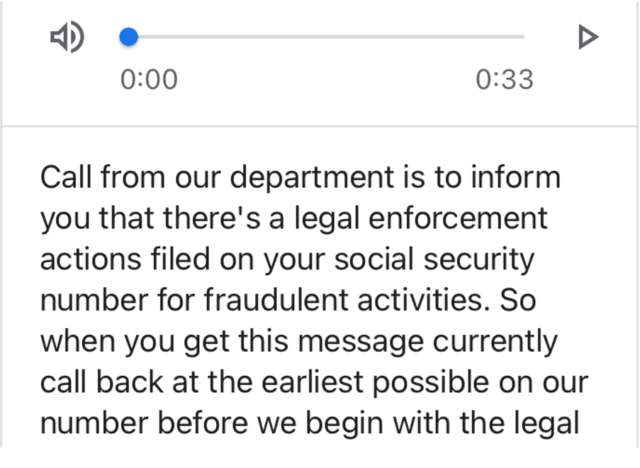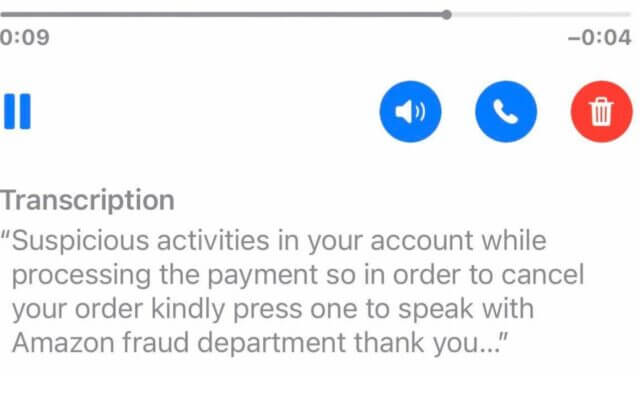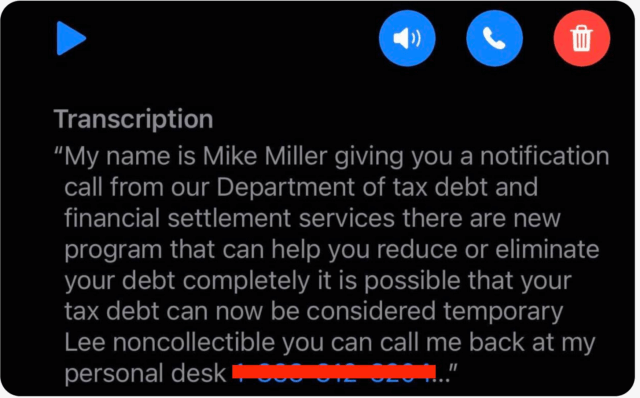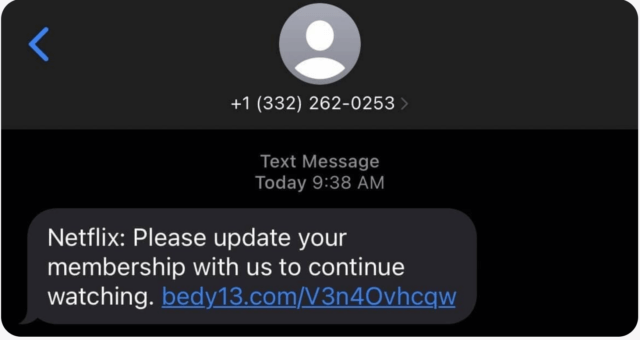Phone Scam Methods
Before we talk about how to protect yourself from phone scams, it is important to know the two different types. Because we receive both phone calls and text messages regularly, scammers have found ways to contact us one way or another. During this lesson we will discuss the difference between Vishing attacks and Smishing attacks. Although the names sound funny and made-up, they are both important to know about to identify potential phone scams.
Vishing
Vishing comes from the phrase “voice phishing”, which is when scammers will try to contact you by calling your phone. For example, if someone calls you claiming to be from the CRA and stating that you must pay money to avoid arrest, this would be an attempt at a Vishing attack. These attempts will be made by talking to you one-on-one where the scammer will attempt to have you provide personal information or credit card details.
Below are 3 examples of what a Vishing attempt could sound like:



Source: https://www.aura.com/learn/vishing
Smishing
Smishing comes from the phrase “SMS phishing”, which is when scammers will send and SMS or text messages. These messages often try to appear like the message is coming from a larger company. For example, you may receive a message from a bank claiming that your account has been suspended and you are asked to provide billing information. Smishing attempts will request that you click on a link to collect your information or account passwords by directing you to fake web forms that they want you to fill out.
Below are 3 examples of what a Smishing attempt could look like:

![Smishing message that says [JP MORGAN ONLINE]: Your debit card has been blocked. Verify your details via link to unblock your card.](https://digitalcitizen.bestbuy.ca/wp-content/uploads/2023/03/image-10-640x283.png)

Source: https://www.aura.com/learn/smishing
Do any of these look familiar? These are some common phone scam attempts. But the good news is, once we are able to identify them we can protect ourselves. Move on the next lesson to learn common phone scams that are currently happening.

